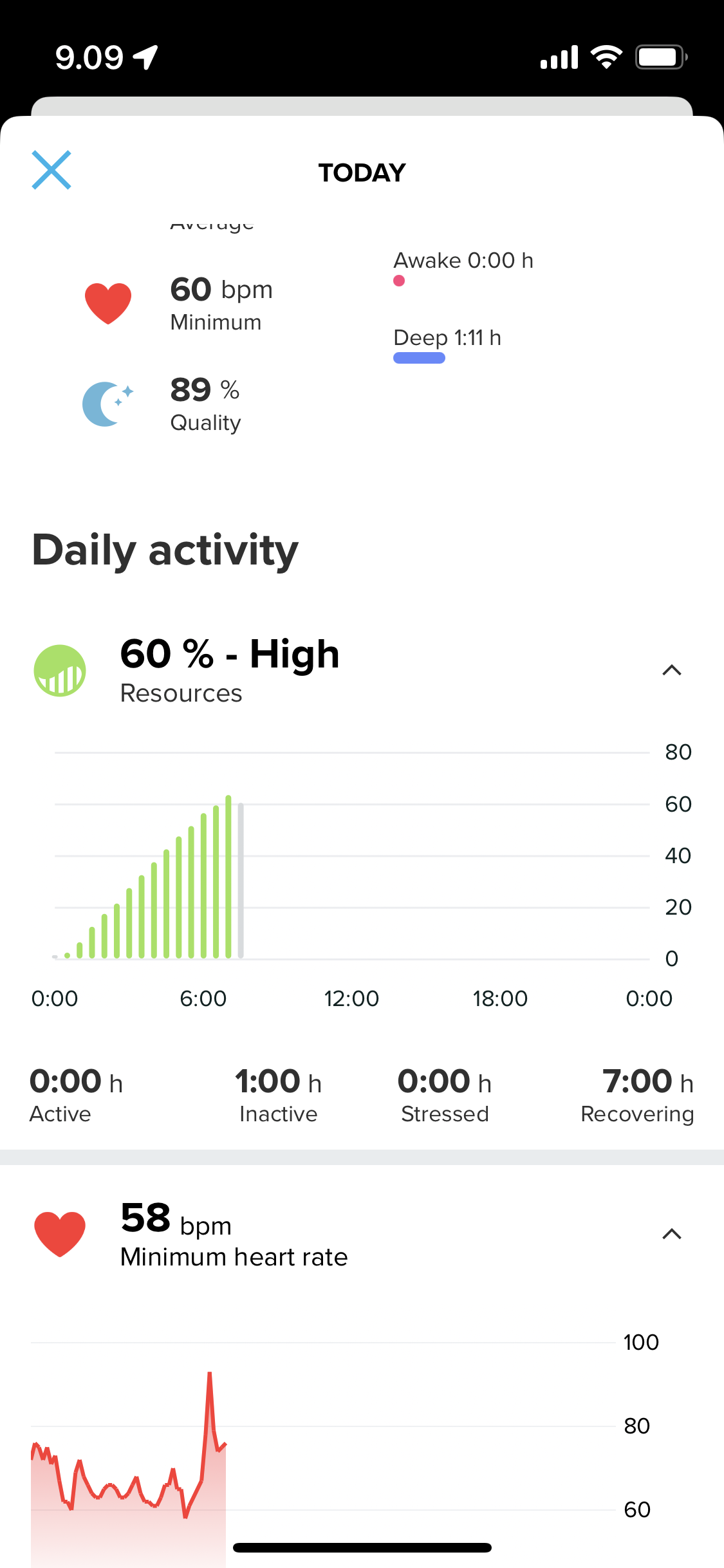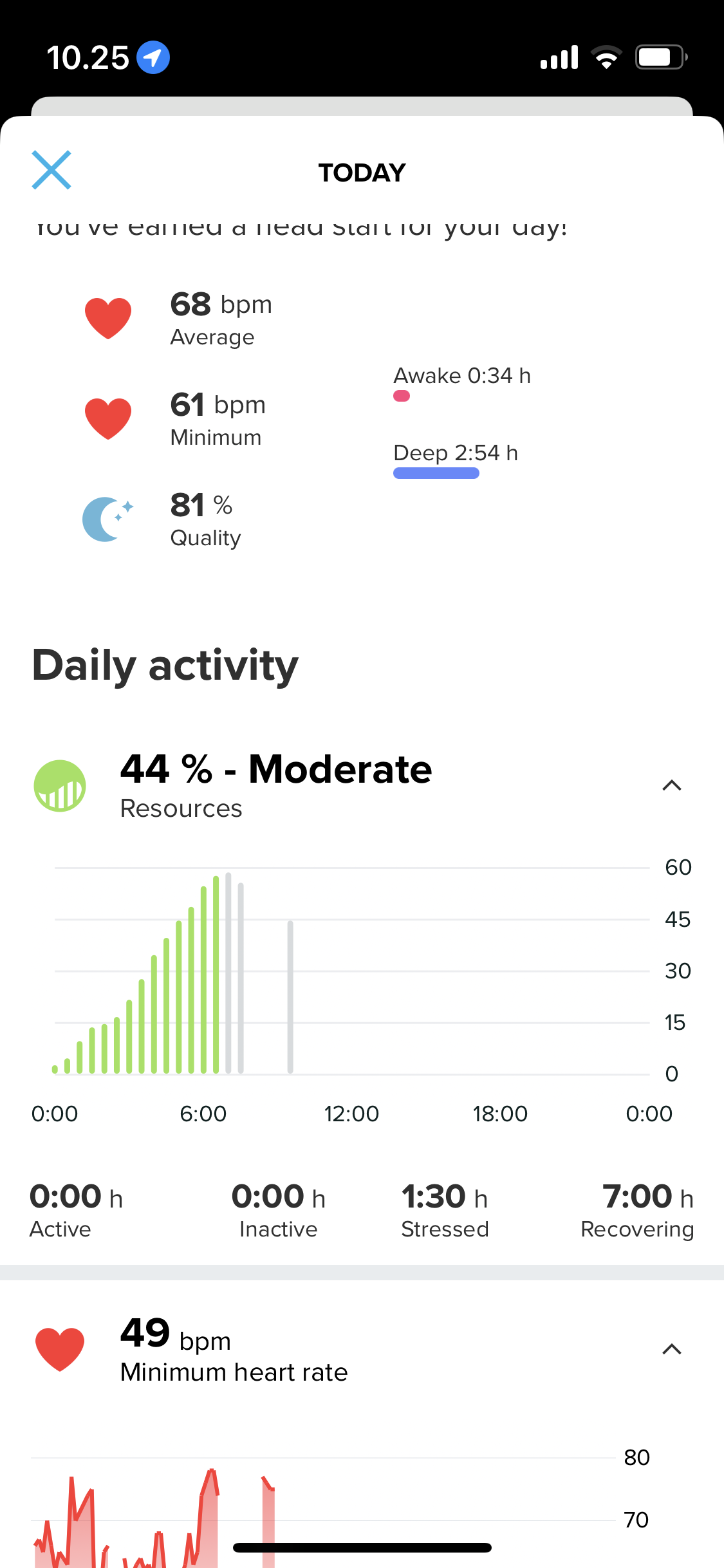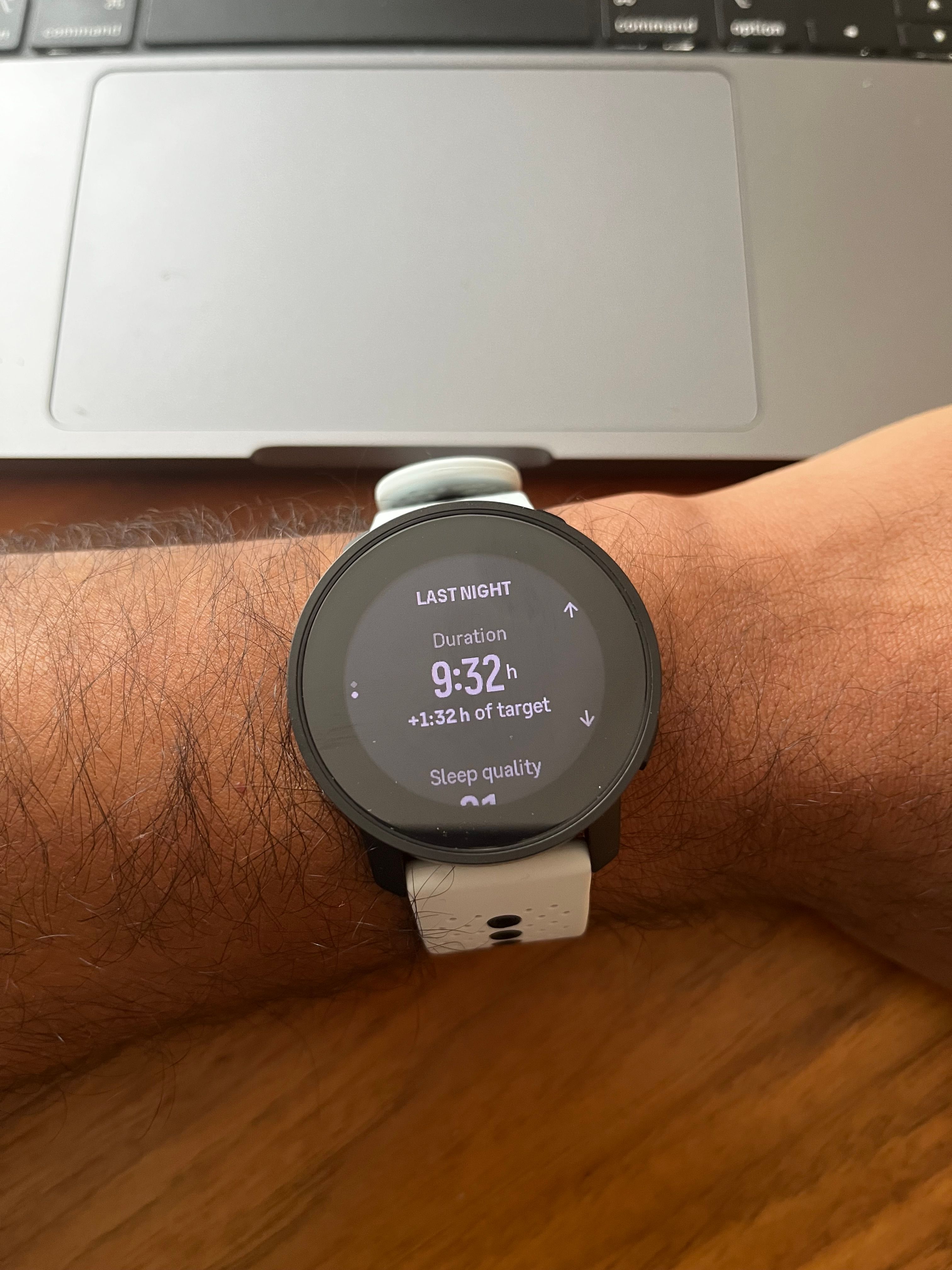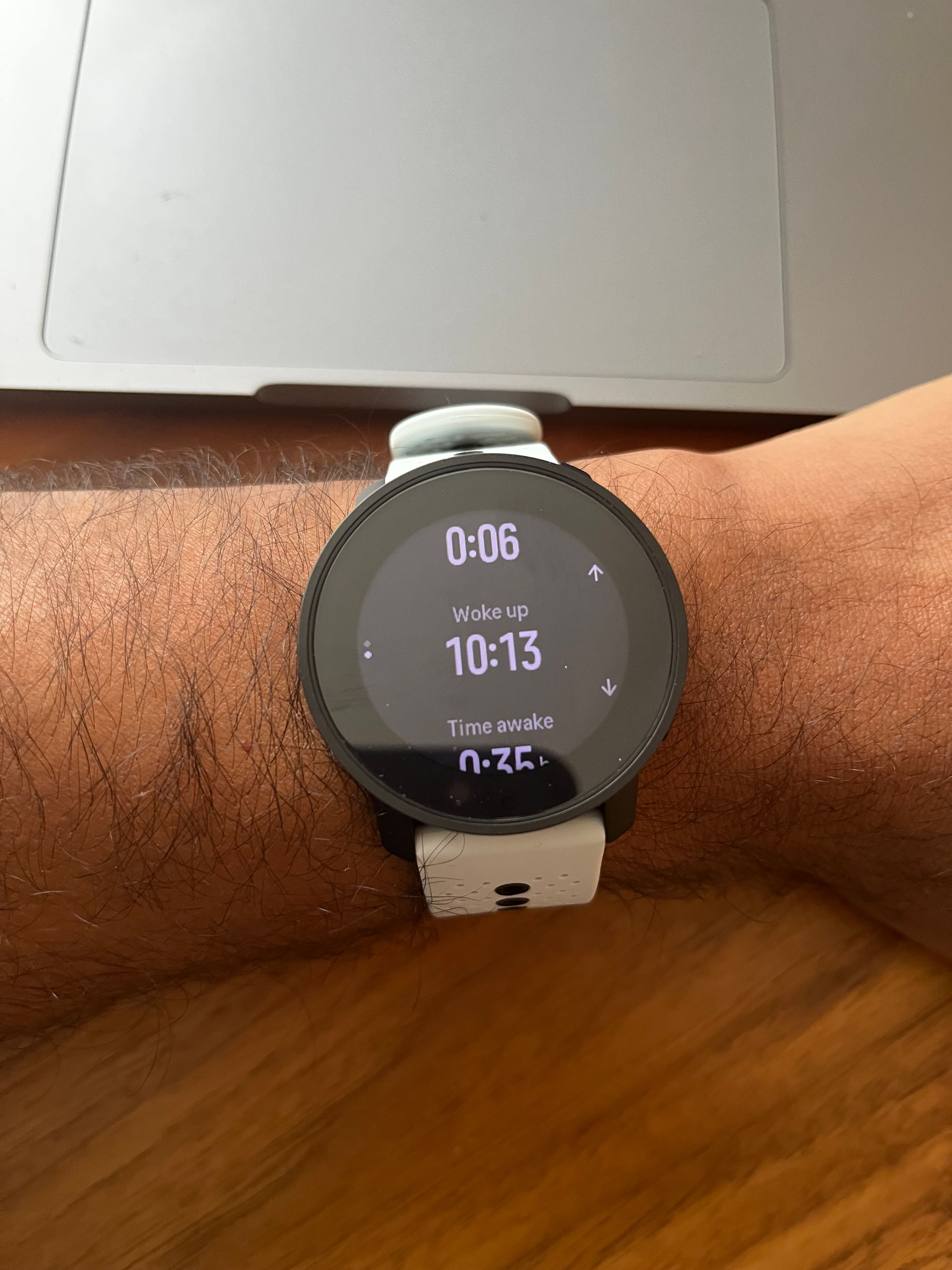Awkward sleep metrics
-
@Brad_Olwin A simple answer to your question would be that I want to track sleep for the same reason as I want to use a watch to track my sports. As I detailed above, the watch did give me the wake-up Good Morning prompt with all the stats, and the same showed on the app too. But what is unclear is why it later assumed I slept until 10 and subsequently did not account for resources. I don’t quite buy the argument that watch was too loose or no movement during sleep - isn’t that why you sleep! I don’t have any concerns on sleep stages as neither Garmin nor Polar or Oura have good consistency on that but here my concern is more with the simple wake up and sleep times which I feel Suunto consistently gets wrong for me. Whether one needs to wear a watch to sleep or not is subjective but a feature has been made available to be used and a consumer can only assume that it works. Else Suunto should just remove them as the science on it is just not conclusive. But here again Suunto has added running power which has its own disagreements.
-
@altcmd resources are based on your heart rate. So that would explain that. What are your sleep settings?
-
@altcmd
sleep tracking works really well for me, even with S9B.
the only thing I can imagine why your watch thought you went back to sleep is because wakeup time is set later than you actually got up this morning. but only you can assess that.I use sleep tracking for the same reason as you, tracking sports why not tracking sleep when we have the possibility. maybe I can see a pattern some day.
how were the recent messurements? you said this one was wrong, how about the others?
I wouldn’t ask for removing a feature because it fails every once in a while -
@freeheeler I wasn’t advocating for removing it but saying that don’t use it defeats the purpose. But the sleep tracking time frame could very well be the culprit here - my time is set from 10pm to 8am, so waking up earlier than 8am and getting a Good Morning report is perhaps not good enough for the watch to understand that the user is awake. If on-wrist detection has been improved on the watch, I am not sure why this cannot be used to further confirm if the user is still asleep or not, rather than just assume that he is until he presses a button after 8am.
-
@el2thek I know but just my point that sleep has been assumed without detecting a heart rate, but resources has continued its normal trend - an anomaly in the code, I feel.
-
@altcmd Sleep tracking also works without tracking your heart rate. I think you’ll get better results having your sleep times a bit too early, than too late.
Alternatively, wear your watch a little longer before taking it off. The 20 steps you described could also have been going to the toilet and back to bed.
-
@el2thek Got it. Thanks!
-
@altcmd
mine is set from 22:30 - 8:00 and my actual bedtime varies between 21:00 to 0:00 and 5:00 to 9:00. the watch gets my sleep really well, unless I watch TV and sit lazy there it happens that the watch starts tracking even before I go to bed. On the other hand, after an exhausting day I go to sleep earlier, the watch tracks, too and that’s what I expect.
On the other side, in the morning, once I’m up the watch recognizes but I am always active then.
I don’t remember that it has ever added more hours e.g. when I got up at 6 but layed lazy down for 1 more hour.long story short: I suggest you play with the sleep limits and maybe find the setup that fits you best


-
@freeheeler Thanks! Will do!
-
@altcmd Mine is OK generally but I would prefer if there was an option to choose ‘Stop sleep tracking?’, so you can lie in bed with a coffee and not have that tracked as sleep. COROS had that option. I also noticed last night a 1 beat difference between Min. HR values on the same nights SA results and am still getting the odd gap in the sleep HR graph (?).
![Screenshot_20221124-122925[1].png](/assets/uploads/files/1669322618132-screenshot_20221124-122925-1.png)
![Screenshot_20221124-122942~2[1].png](/assets/uploads/files/1669322634463-screenshot_20221124-122942-2-1.png)
-
@mikekoski490 if I’m not wrong the 1bpm difference between watch and SA is rounding. Been there for a while I think.
-
@altcmd mine is set from 22:30 to 6:30 and I typically wake 5:30 to 6:00 with no detection issues. For me Suunto does not recognize a short awake period during the night but does effectively detect sleep and morning wake times.
-
@isazi Any thoughts on why I am seeing a 12 bpm difference?
-
@isazi Thanks. Im not fussed by it, just thought Suunto would simply put ‘value of X = value of Y’ lol. I have had as much as a 4 beat difference too, BUT again its about trends not a single night, and I find Suunto to be more accurate reflection of how I felt my sleep was (Garmin was ALWAYS wrong).
-
@altcmd is daily or sleep the lowest?
-
@isazi sleep is lower, naturally.
-
@mikekoski490 thanks for the input.
-
If more people are seeing this, post in the Android or iOS app screenshots, and I will forward them to Suunto. And also write the app version you use.
-
@isazi 2bpm off today. iOS 2.18

-
I’ve noticed this as well.
I think that if sleep tracking is activated, and you track at least a bit of sleep, then taking off the watch - so no movement - around the sleep time (imemdiately before or immediately after) will result in additional time “sleeping” being counted.
I guess it might be an unintende consequence of wanting to continue counting when you wake up in the middle of the night to go to the bathroom, or to a crying child.


